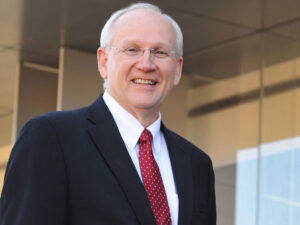A study by UPMC and University of Pittsburgh School of Medicine researchers demonstrates the highest accuracy to date in recognizing and characterizing prostate cancer using an artificial intelligence program.
Oncology practices face difficult challenges while delivering care in the middle of COVID-19, as they care for patients who are at higher risk for this potentially deadly disease. While there is still much to learn about how COVID-19 impacts various patient populations, early studies of COVID-19 patients with a history of cancer provide some insight.
Winship Cancer Institute of Emory University received $7.8 million from the Paula and Rodger Riney Foundation to fund the Riney Family Multiple Myeloma Research Program Fund.
Ge Jin and Bingcheng Wang received a $3.7 million five-year grant to explore why those living with HIV have a higher risk for certain kinds of cancers, such as lung cancer.
The Prostate Cancer Foundation and Robert F. Smith, founder, chairman and CEO of Vista Equity Partners, plan to collaborate on research to reduce deaths from prostate cancer.
In a July 24, 2020 letter to the editor entitled, “Insurers’ moves to limit telehealth amid COVID-19 are inhumane and must be stopped,” the authors use disjointed logic to reach an inaccurate conclusion.
The Senate appropriations subcommittee July 27 proposed a fifth COVID-19 pandemic relief package that includes $15.5 billion in supplemental funds for NIH.
Two articles in the July 24 issue of The Cancer Letter referenced a April 1 Journal of Urology manuscript (doi:10.1097/JU.0000000000000577) describing frequent delays in administration of LHRH agonists and the potential clinical impact as assessed through recovery of testosterone.
Raymond N. DuBois was named director of MUSC Hollings Cancer Center effective Aug. 17.
A UC Davis cancer researcher was arrested July 24 on visa fraud charges.











